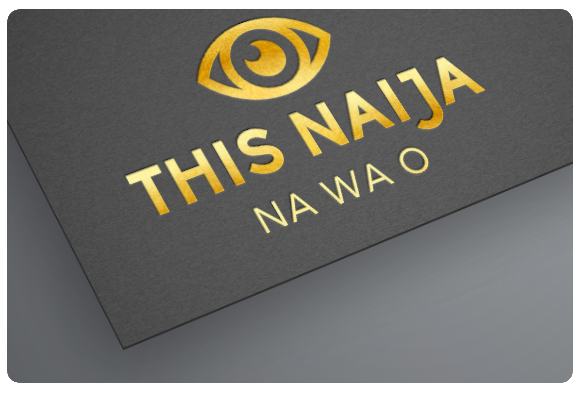Disclosure: The views and opinions expressed right here belong solely to the writer and don’t signify the views and opinions of crypto.information’ editorial.
The fintech sector stands at a pivotal juncture the place the push for innovation intersects with the pull of accelerating regulatory oversight. Because the CEO of Keabank, I’ve seen firsthand how world regulatory traits, corresponding to stricter knowledge privateness legal guidelines and anti-money laundering necessities, are remodeling the panorama for fintech firms. Whereas these laws are undoubtedly vital to guard shoppers and the monetary system, additionally they current vital challenges and alternatives for innovation. The query is: How can we strike the correct steadiness?
AML necessities: A vital problem
Anti-money laundering laws are one other space the place world traits are having a profound influence on fintech firms. As monetary transactions more and more transfer on-line, regulators have elevated their efforts to forestall illicit actions corresponding to cash laundering and terrorist financing. This has led to the introduction of stricter know your customer necessities, in addition to enhanced monitoring and reporting obligations.
These laws might be burdensome for fintech firms, significantly these working throughout borders. Massive banks and monetary establishments make investments tens of millions, if not billions, to take care of an efficient AML framework. Binance’s recent announcement is a stark reminder of the size of funding required. Fintechs, usually with extra restricted assets, should address the identical requirements and guidelines. The necessity to implement strong AML methods can divert assets away from different areas of innovation. Furthermore, the complexity of navigating totally different regulatory frameworks in a number of jurisdictions might be overwhelming for smaller fintech companies, probably stifling their progress.
But, these challenges additionally current alternatives for innovation. The fintech sector is uniquely positioned to develop superior options that not solely meet however exceed regulatory expectations. For instance, integrating blockchain know-how into compliance processes can improve transparency and traceability, making detecting and stopping illicit actions simpler. By leveraging know-how to streamline compliance, fintech firms can flip regulatory necessities right into a catalyst for innovation moderately than a barrier.
Furthermore, the emergence of Banking-as-a-Service and embedded finance and collaborations between huge banks and fintechs showcases the potential to “outsource” compliance work to simpler fintech options. This method permits for a extra specialised give attention to compliance whereas enabling banks to innovate at a sooner tempo.
It’s additionally vital to acknowledge the cyclical nature of regulatory environments. Regulators usually undergo phases: initially being very open, welcoming new gamers by means of sandboxes, or issuing extra licenses, adopted by a tightening part the place fewer new licenses are granted, and current gamers face larger scrutiny. Lastly, a maturity part units in, the place each new fintechs and regulators perceive what to anticipate from one another. Most jurisdictions are at present on this maturity stage, which is a constructive improvement, because it supplies a extra secure atmosphere for fintech innovation.
Knowledge privateness legal guidelines: A double-edged sword
In recent times, knowledge privateness has moved to the forefront of regulatory agendas worldwide. The European Union’s Normal Knowledge Safety Regulation set a brand new customary, influencing related laws in different areas, such because the California Client Privateness Act in the US. For fintech firms, which frequently depend on huge quantities of information to supply personalised monetary providers, these legal guidelines signify a double-edged sword.
On one hand, stricter knowledge privateness laws can stifle innovation by imposing vital compliance prices and limiting the methods wherein knowledge can be utilized. As an illustration, machine studying algorithms that drive many fintech improvements require giant datasets to operate successfully. When entry to this knowledge is restricted, the event of recent services can decelerate.
Nevertheless, there’s additionally a silver lining. Firms that may navigate these laws successfully, making certain each compliance and buyer belief, can acquire a aggressive edge. By adopting privacy-by-design ideas, fintech companies can differentiate themselves in a crowded market, providing transparency and safety as key worth propositions. The problem will not be merely to conform however to innovate inside the constraints of those new legal guidelines.
The worldwide regulatory patchwork: A barrier to scale?
Probably the most vital challenges fintech firms face is the worldwide regulatory patchwork. Whereas laws like GDPR and AML requirements have gotten more and more prevalent, there’s nonetheless an absence of harmonization throughout jurisdictions. This creates a fancy and fragmented regulatory atmosphere that may be significantly difficult for fintech companies trying to scale globally.
As an illustration, a fintech firm working in each the European Union and Asia or the Center East should navigate distinct regulatory landscapes, every with its personal set of necessities. This could result in elevated compliance prices and operational inefficiencies, hindering the power to scale quickly.
To handle this subject, there’s a rising want for worldwide regulatory cooperation. Harmonizing laws throughout borders might scale back the burden on fintech firms and facilitate the expansion of the sector. Nevertheless, reaching this can require collaboration between regulators, business leaders, and policymakers. As fintech continues to evolve, the necessity for a extra cohesive world regulatory framework will solely turn into extra urgent.
Innovation inside regulation: A strategic crucial
Regardless of the challenges posed by world regulatory traits, the fintech sector has proven exceptional resilience and flexibility. Innovation inside the framework of regulation isn’t just attainable—it’s important. For fintech firms, the important thing to success lies in viewing regulation not as an impediment however as a strategic crucial.
By embracing regulation as a driver of innovation, fintech companies can create extra strong, safe, and user-friendly merchandise. For instance, developments in AI and machine studying can assist automate compliance processes, lowering the burden on firms whereas making certain adherence to regulatory requirements. Equally, the usage of blockchain know-how can improve transparency and accountability, addressing regulatory issues whereas driving new types of worth creation.
Navigating the long run
As we glance to the long run, it’s clear that world regulatory traits will proceed to form the fintech panorama. Whereas these laws current challenges, additionally they supply alternatives for firms that may innovate inside their constraints. The important thing for fintech leaders is to remain forward of the curve, anticipating regulatory modifications and adapting their methods accordingly.
At Keabank, we’re dedicated to navigating this advanced panorama by embracing regulation as a catalyst for innovation. By doing so, we purpose to not solely meet however exceed regulatory expectations, setting a brand new customary for the business. The way forward for fintech lies not in resisting regulation however in leveraging it to drive progress, innovation, and belief.
In the long run, the influence of worldwide regulatory traits on fintech will depend upon how firms select to reply. Those that can strike the correct steadiness between compliance and innovation will probably be well-positioned to steer the business into the long run.





